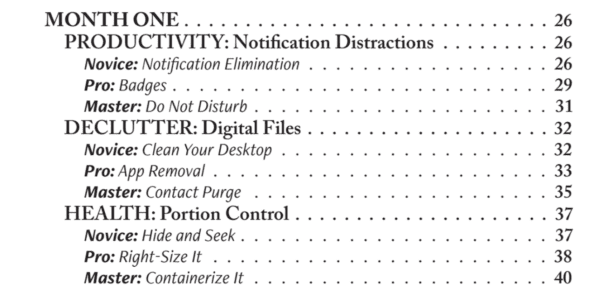Is it technically a distraction if you procrastinate by doing something with intention?
“Mistakes repeated more than once is a decision.” – Paulo Coehlo.
When we get sucked into our email, social media, or shopping, it's often an impulse or habit. We're encouraged by technology's ability to lure us in with never-ending feeds, clickbait headlines, and a dopamine response we can't ignore.
When we purposely divert our attention to Instagram, LinkedIn, or The New York Times, is it a distraction since we do it intentionally?
If we choose to do it, we're intentionally scrolling through Netflix or reading Amazon reviews. Netflix isn't turning itself on. Amazon isn't forcing us to continue reading.
That game you're playing ends, but it's SOOOO easy to start another one. The friction is almost non-existent.
Distraction moves us away from a goal. Traction moves us closer to a goal. What's the commonality?
Action
Often, we own our distractions. We have the game on our phones, don't set limits for social media, and refuse to put up a Do Not Disturb sign when we're in Deep Focus mode. We're unwilling to create an environment where the things in our control are limited.
What is a distraction?
The Amazon truck pulled up outside. The chat box screams at me because my company won't let us use Do Not Disturb. Someone knocked on the door to the phone booth at my co-working space.
If you're finding ways to sabotage yourself, what's so hard about that task causing you to do it? It's too easy to get sucked into my inbox, so I use Inbox Pause to send emails and don't see them except when I unpause my inbox. I use Freedom** to keep me from going to LinkedIn whenever I think of something I want to check. Instead, I keep a running list and visit LinkedIn 1-2 times daily.
What is one thing you would like to cut back on that doesn't move you toward your goal, whatever that goal is? What can you do to stop that impulse? Do you need to install an app that physically blocks you from it? Do you need to invest in a door hanger or sign? With food cravings, can you force yourself to wait five minutes? It's only five minutes, right?
The next time you spend more minutes on something than you would have liked to, think about how that is your intention. As Nir Eyal, author of Indistractable, states, You can’t call something a distraction unless you know what you are distracted from.
How would you approach that differently next time? What are you distracted from? Have an action plan, remove that distraction, and focus on traction!
Distractions have a massive cost in the workplace.
Distractions and Interruptions throughout the workday can add up. According to estimates by Gloria Mark (Leader in the space of Digital Distractions and focus), refocusing your efforts after just one interruption can take anywhere b/w 70 seconds to 23 minutes. An average knowledge worker gets 150 emails daily; 70% are read within 6 seconds. If we do the math, we spend 20% of our workday checking emails and recovering! This is a considerable cost. The natural question is, ‘Are we actually getting work done or just reacting to distractions'?
Employees need learning and tools to manage distractions and focus.
There are many ways to manage distractions at work. We have training programs dedicated to rethinking and revitalizing productivity for your employees.
Start with being more intentional about your focus and get something done!
Where do you want to give your intention now?
It’s time to be intentional about our attention.
Post written by Marcey Rader and Rijul Arora.



